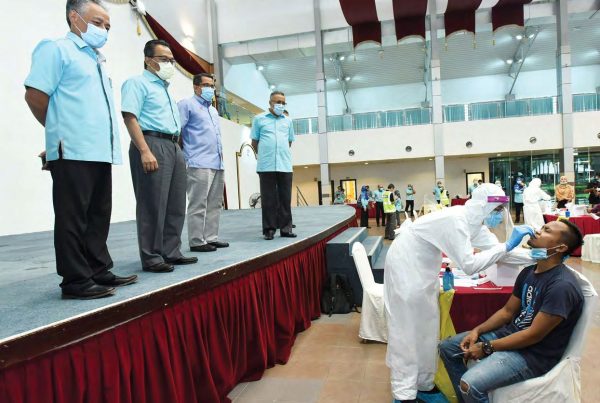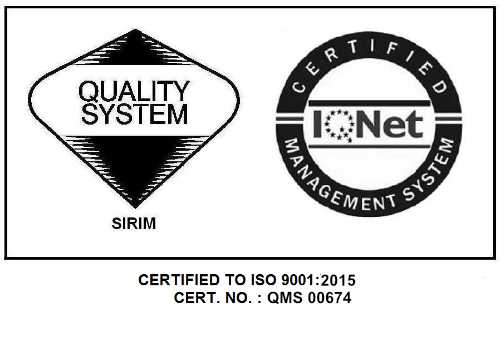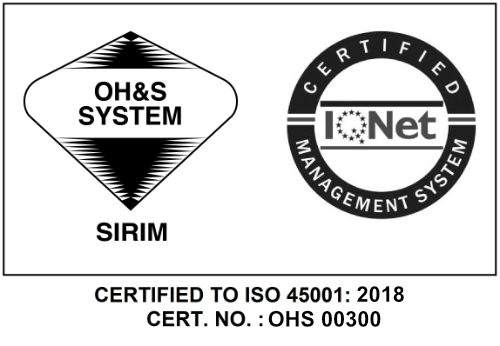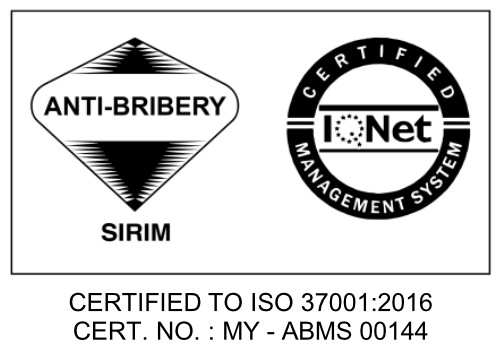The event also marked the launch of Construction Industry Standard (CIS) 27: 2019, which will help in improving safety of construction sites
CIDB has recognised 40 contractors for achieving 5-star rating Safety And Health Assessment System In Construction (SHASSIC) in conjunction with SHASSIC Day which was held for the first time recently. SHASSIC Day was organised to recognise the industry players’ stellar performance in construction safety and health practices.
This SHASSIC program is in line with the goals outlined in the core Strategic Quality, Safety and Professionalism under the Construction Industry Transformation Programme 2016-2020 (CITP), which outlines the steps for improving safety practices at construction sites. CITP’s objective is to reduce the number of accidents and deaths at the construction sites by 10% each the year starting from 2021 based on 2020’s statistics.
Currently, the death rate in the Malaysian construction industry is 13.44 deaths for every 100,000 construction workers, which is the highest compared to other industries in the country.
“However, efforts to change these statistics are not confined to one party or agency. In fact, various parties authorities, clients or project owners, consultants, employers and employees themselves play a part in ensuring that the construction site environment safe and sound,” stated Dato ‘Ir. Dr. Meor Abdul Aziz Bin Osman, the Chairman of CIDB Malaysia during his speech to commemorate the launch of SHASSIC Day. Also present were Datuk ‘Ir. Ahmad Asri Abdul Hamid, Chief Executive of CIDB Malaysia and his deputy, Datuk Ir. Elias Ismail.

SHASSIC was introduced in 2008 through the cooperation of CIDB with other agencies including the Department of Occupational Safety and Health (DOSH), the Public Works Department (JKR), Master Builders Association Malaysia (MBAM), among others. SHASSIC is a safety and health performance evaluation system that measures the Occupational Safety and Health (OSH) preparedness of contractors in a construction project or activity. With SHASSIC, OSH’s performance in the Malaysian construction industry is objectively evaluated and benchmarked against equivalent standardised systems.
“Based on their SHASSIC scores, industry players can identify their respective levels of OSH practices. In order to help industry players improve their level of OSH practices, several special trainings or corrective actions can be arranged to assist contractors and their employees improve on-site safety and health management.
“Through this initiative, it is hoped that the occurrence of construction related accidents will be reduced and the quality and well-being of people working in the industry can be enhanced,” said Datuk ‘Ir. Ahmad Asri Abdul Hamid, Chief Executive CIDB Malaysia.
In conjunction with the momentous event, the then Minister of Works also launched Construction Industry Standards Construction (CIS) 27: 2019 Occupational Safety and Health – Specification and Bill of Quantities (BQ) for Construction Works. These standards detail the necessary OSH requirements that needed to be taken into account when calculating the costs of running a project. This ensures that the project has sufficient provisions to manage the OSH aspects on-site.
Companies that include the OSH implementation costs in the Bill of Quantities (BQ) may run the risk of losing the tender due to their higher price compared to those who choose to omit OSH-related expenses when bidding for a project. To prevent this from occurring, project owners or clients may refer to CIS 27: 2019 to verify if the OSH expenses quoted in the tender bids are reasonable when implementing OSH in their projects. This is to ensure all contractors have sufficient allocation to implement OSH on-site, comply with the legal requirements and commit to good practices in an effort to reduce the rate of construction-related accidents.
“I believe that the long-term implementation of SHASSIC coupled with the use of CIS 27: 2019 will help inculcate a culture of quality, safety and professionalism in the construction industry, in line with CITP’s goals,” said Dato ‘Ir. Dr. Meor Abdul Aziz.









